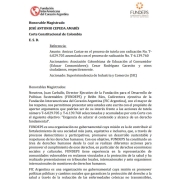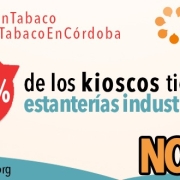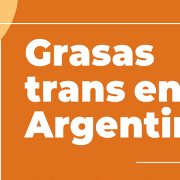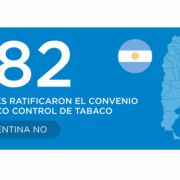We participate in the launch of the National Coalition for the Prevention of Childhood Obesity
“Below, we offer a google translate version of the original article in Spanish. This translation may not be accurate but serves as a general presentation of the article. For more accurate information, please switch to the Spanish version of the website. In addition, feel free to directly contact in English the person mentioned at the bottom of this article with regards to this topic”
BUENOS AIRES. On Friday, November 24, there is a day for the presentation of the National Coalition for the Prevention of Childhood Obesity; What is sought from this initiative is to decrease the highest rates of this epidemic, based on mutual and collaborative work.
Currently, there are about 41 million children under 5 years of age who are overweight or obese, of which more than 80% live in developing countries. The data available in the Latin American region indicate that, in general terms, 20% to 25% of those under 19 years of age are affected by overweight and obesity. In Argentina, the World School Health Survey conducted in 2012, showed that overweight among students was 28.6% in 2012, being higher among men (35.9% vs. 21.8% women) and with higher prevalence at younger ages.
The event contains instances for intersectoral dialogue in order to discuss the situation of the problem in Argentina, define lines of action and next steps. Representatives of international organizations such as PAHO Argentina, representatives of the governmental sector, and members of the academic and civil society are participating.
In addition, the first consensual document of the Coalition is presented, which deals with policy standards for healthy school environments in Argentina. The same was working in a coordinated manner among the members and its final conclusion is intended, from this day.
Our decision to participate in this network arises with the intention of addressing more effectively an important public health problem. In addition, we believe that it is necessary that these spaces have local data for the purpose of designing policies appropriate to local realities in terms of healthy eating.
Contact
Juan Carballo – juanmcarballo@fundeps.org
Agustina Mozzoni – agustinamozzoni@fundeps.org








